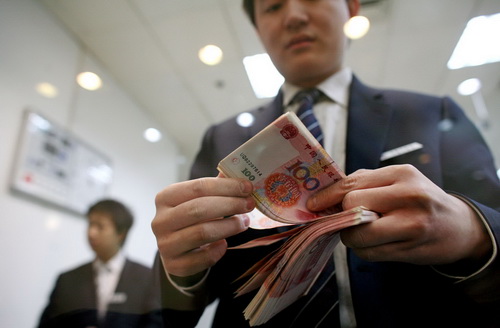Money
Obama pleased with 'first step' in RMB reform
By Ding Qingfen and Wu Chong (China Daily)
Updated: 2010-06-29 09:27
 |
Large Medium Small |
TORONTO - US President Barack Obama believes that China's currency will rise by a large margin and Washington will be "paying attention" to Beijing's further exchange rate reforms in the coming months.
 |
|
A bank teller counts 100 yuan notes in a Bank of China branch in Beijing. Nobel laureate Robert Mundell warned that a major appreciation of the Chinese currency would hurt the nation. [NATALIE BEHRING / BLOOMBERG] |
Chinese economists said the American president is indirectly urging China to further revalue its currency and is also calming down domestic critics of China's foreign exchange reform. But they believed it is unlikely that the renminbi will grow as much as the US expects in the short term.
While he acknowledged the progress that China made so far in foreign exchange reform and indicated the US was pleased China "made the first step", Obama said "we do expect that as more and more market forces come to bear, that given the enormous surpluses that China has accumulated, that the renminbi is going to go up and it's going to go up significantly."
China last week announced it will allow more flexibility of its currency, which ended its de facto peg to the US dollar in force since July 2008.
But some US senators, lawmakers and manufacturers are still unhappy, calling for further gains in the value of the renminbi and urging the administration to punish Chinese exporters by imposing countervailing duties.




